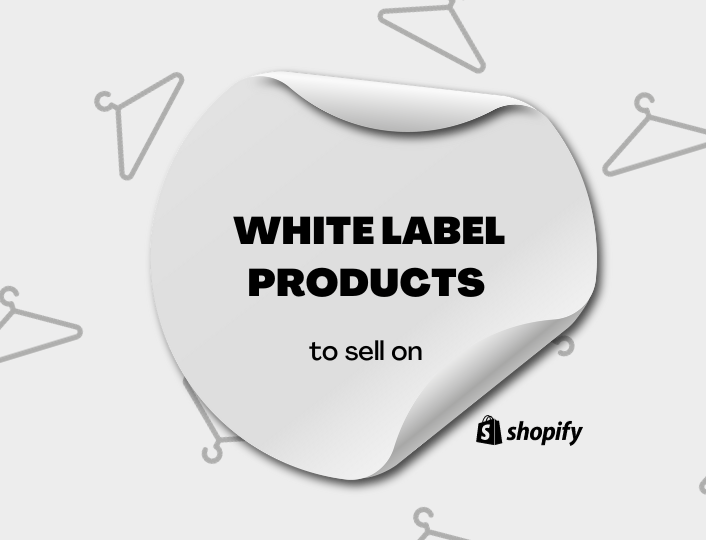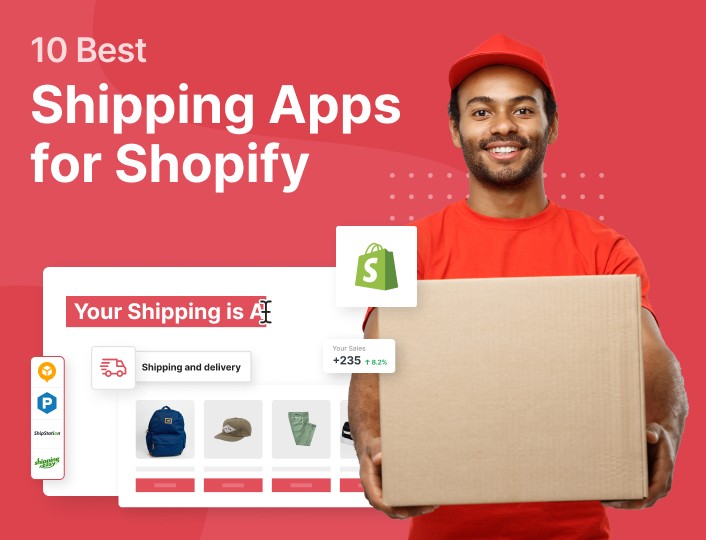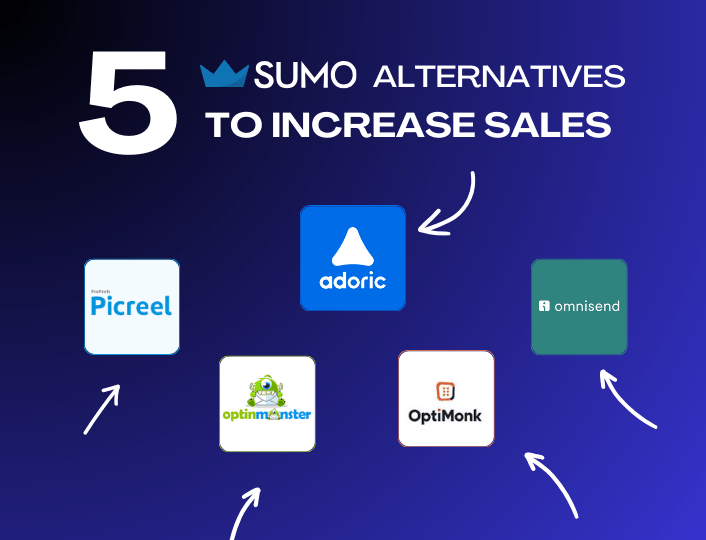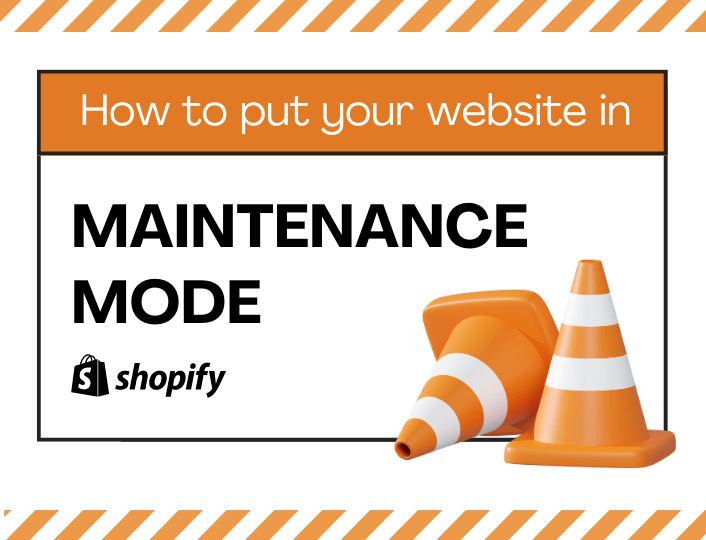Creating and selling branded products on Shopify is not as difficult as you may have imagined. All it takes is to customize white-label products and you have yourself a brand. This is the fastest and most cost-efficient way to start selling branded products.
In this guide, we have curated a list of 10 white-label products to sell on Shopify from fashion to wellness, and many more.
But before we dive in, what are white-label products and what are the benefits of selling them on your Shopify store? Keep reading.
What are White label products?
White-label products, sometimes considered private-label products, are items manufactured by one company but sold under another company’s brand name or label.
In other words, these products are produced by a third-party manufacturer and then rebranded or labeled with the branding of a retailer, reseller, or another business that chooses to sell them. They are often mass-produced and resold under multiple brand names.
While white-label and private-label products are considered to be the same, there is a slight difference between them. White-label products are generic items bulk-produced and rebranded into different brand names. Whereas, private label products are manufactured by a third-party manufacturing company strictly on demand by a brand.
For instance, a manufacturing company can mass-produce a T-shirt and sell them to different brands. These brands then attach their brand name or logo to the product before selling. These are white-label products.
An influencer who starts a fashion line without having a factory can outsource product designs and specificity to a manufacturing company. The company then produces and labels the items using the Influencer’s branding. In this case, the items are private-label products.
Here’s how the process typically works:
Identifying Manufacturing Companies
Brands or businesses identify manufacturing companies specializing in producing particular products and liaise with them. These companies must be able to produce and label items efficiently based on request.
Branding
After identifying the company, the brand, retailer, or distributor, approaches the manufacturer to create a product with their branding. This could include their company logo, packaging design, and even specific product features or variations. They can also request that the available products be customized using their business branding.
Production
Once the necessary details are set in place, the manufacturer prints the product according to the provided specifications and branding. To ensure that the products are up to standard, the requesting company can monitor the production progress until the products enter the market.
However, since these products are bulk-produced, there is a high possibility that the same product may be sold under multiple different brand names.
Distribution
The requesting company then sells the product to consumers, often in physical stores or online. White-label products can be printed on demand or dropshipped directly to the consumers from the manufacturing company.
The end consumer usually doesn’t know that the product was made by a third-party manufacturer. If dropshipping your white-label products sounds like something you want to do, here is how to find the best dropshipping manufacturers.
Pros and Cons of selling White Label products
Selling white-label products introduces several advantages and disadvantages to businesses. It’s essential to weigh these pros and cons carefully when considering whether to include white-label products in your Shopify store:
Pros of Selling White Label Products
Cost-Efficiency
When comparing the cost of sourcing white-label products to creating a product from scratch to finish, white-label products can be more cost-effective. You don’t need to invest in manufacturing facilities, equipment, sourcing raw materials, or extensive research and development.
You only need to pay for the quantity of product you decide to buy and other services like branding. And in some cases, you may not need a warehouse if they offer dropshipping services.
Time Conservation
Since white-label products are bulk-produced and almost always in production, bringing them into the market is typically quicker compared to creating a brand-new product. This can be an advantage for you if your business niche is in a fast-paced industry.
Brand Expansion
White-labeling allows businesses to offer a wide range of products without the need for in-house production facilities. You get to quickly source and sell trending products while they are in demand. This diversity can help you grow your customer base and boost brand affinity from your customers.
Lower Risk
Since white-label products often have a proven track record in the market, you have lower chances of having a poor sales experience. You can assess their performance and market acceptance before committing to selling them in your Shopify store on a large scale.
Access to Expertise
Partnering with established manufacturers or suppliers includes their expertise in product design, manufacturing, and quality control. This means you don’t have to worry about defaulting to standard production policies.
Such responsibility lies on the manufacturers and they often ensure that all standards are met. This can result in higher-quality products and fewer production-related challenges.
Focus on Marketing and Sales
Selling white-label products allows businesses to focus on other vital parts of their business including, marketing, branding, distribution channels, customer service, sales, and more. That way, you can enhance productivity and boost your overall business performance.
Scalability
As a business owner selling white-label products, you can increase or reduce inventory at any time given market demands. And you can do that easily with little or no cost implications.
Cons of Selling White Label Products
Here are some cons of selling white-label products:
Branding Challenges
Building a unique brand identity can be challenging when selling white-label products. This is because you have limited to no control over the production process. Since most white-label products are bulk-produced, multiple brands end up selling similar or identical products under different brand names.
Reduced Profit Margins
Although white-label products are cost-effective to source, the competition among businesses selling the same product can lead to price wars. This can cause resellers to lower their profit margin in order to make sales.
Dependence on Suppliers
Selling white-label products on Shopify means your business depends heavily on the manufacturer. And if they encounter any product issues or compromise on quality, it will impact your sales and business reputation.
10 White label products to sell
Having covered how white label products work, here are ten ideas you can consider selling on your Shopify store in any random order:
1. Skincare and Beauty Products


The skincare and beauty industry is a multi-billion industry estimated to reach a value of 128.89 billion USD by 2028. Since the industry is vast, niching down to one or two product categories could be the best approach.
You can offer any of the following products as white-label on Shopify – moisturizers, serums, makeup, perfumes, hair care items, or skincare kits.
2. T-shirts


T-shirts are another lucrative white-label product to sell on Shopify. There will always be a demand for clothes. T-shirts are one of the most in-demand apparel for men and women, young and old.
The best part is that you can start a T-shirt dropshipping business on Shopify with as little as $100 in capital.
Offer custom-branded clothing items like t-shirts, hoodies, or hats. You can choose from a wide variety of styles and materials to cater to different customer preferences.
3. Fitness clothing and accessories


In our present society, fitness has gone beyond trying to lose weight to maintaining an overall healthy lifestyle. You can tap into the versatility of the fitness industry by selling fitness clothing and accessories such as jogging outfits, socks, leggings, sports shoes, yoga mats, water bottles, dumbbells, and more.
4. Health Supplements
Besides workouts and exercise, supplements are also an essential part of wellness. You can source private-label supplements from licensed producers to sell on your Shopify website. Collagen, probiotics, cod liver oil, coffee, herbs, and more.
5. Reusable tote bags


With more people becoming conscious of environmental preservation, selling reusable bags on Shopify seems like a great idea. These bags are eco-friendly and more durable. They are perfect for Shopify, saving the buyer the stress of handling multiple paper bags at a time.
6. Home Decor and Office Supplies


Who doesn’t love a beautiful home interior? Almost no one. Consider selling white-label home decor items such as candles, wall art, cushions, or personalized home goods. Supplemental Office Supplies. And office supplies including notebooks, pens, and more.
7. Massage Guns
Massage guns have garnered popularity since and have quickly become a household gadget for wellness. They are very lucrative and easy to source. You can buy them as white-label products on Alibaba, Amazon, or direct manufacturers.
8. Pet Products


The love for pets is inexplicable; some of these furry babies are considered to be a man’s (or female’s) best friend. With about 33% of households worldwide owning a pet, the pet industry has a global presence and is quite lucrative.
This makes selling white-label pet products on Shopify a lucrative venture. Pet food, pet toys, dog beds, bunny cages, or pet grooming products are all great options for white-label products to sell.
9. Phone Cases
White label phone cases are another interesting option to consider. They are high in demand and easy to source and customize. You can also include other phone accessories like selfie sticks, car mounts, stickers, and more.
10. Jewelry and Accessories


Jewelry products are evergreen and remain lucrative all year round. There are a variety of white-label jewelry items you can sell on Shopify. This includes wristwatches, necklaces, earrings, rings, brooches, and more.
Conclusion
Offering white-label products on your Shopify store is a great way to generate revenue with limited resources. With the right selection of these ready-to-sell items, you can diversify your offerings, cater to niche markets, and boost your business’s profitability.
However, you also need to intensify your marketing campaigns to drive more customers to your website and ultimately convert them into customers. That is where Adoric comes in.
With features such as product recommendations, exit-intent popups, and falling gift games, Adoric helps boost your website conversion and revenue by an average of 25%.
Find out how Adoric helps Shopify merchants here.




